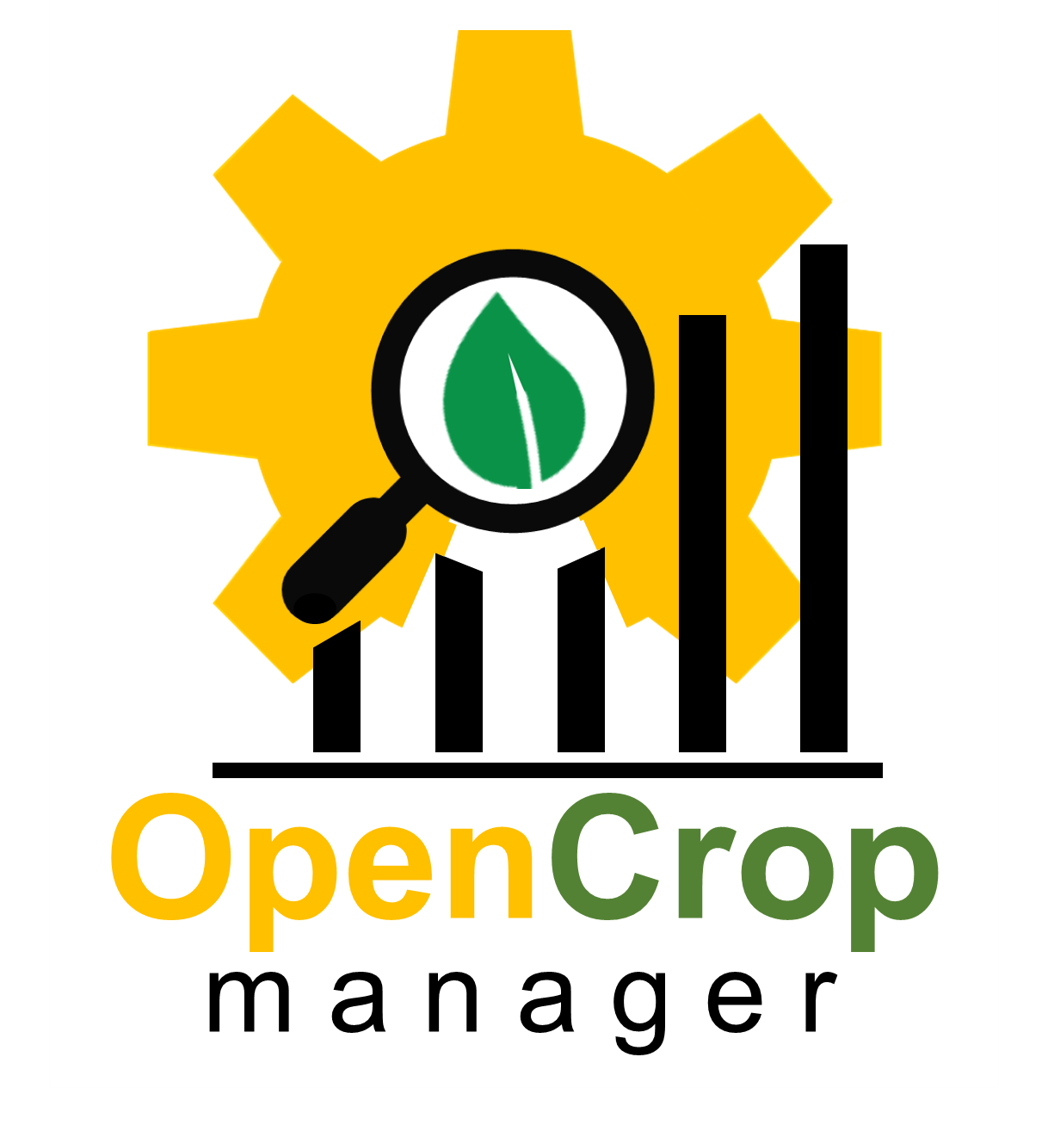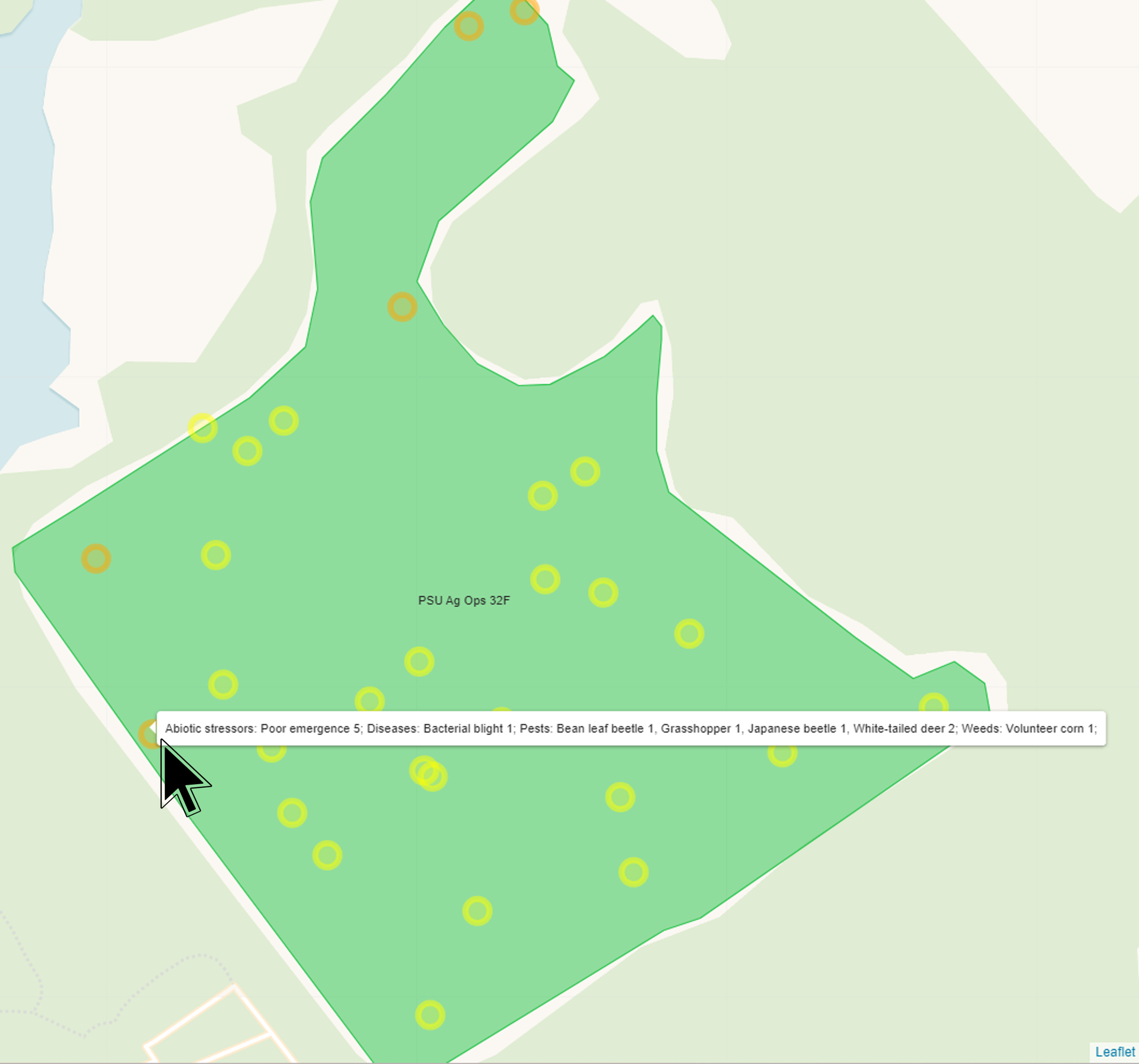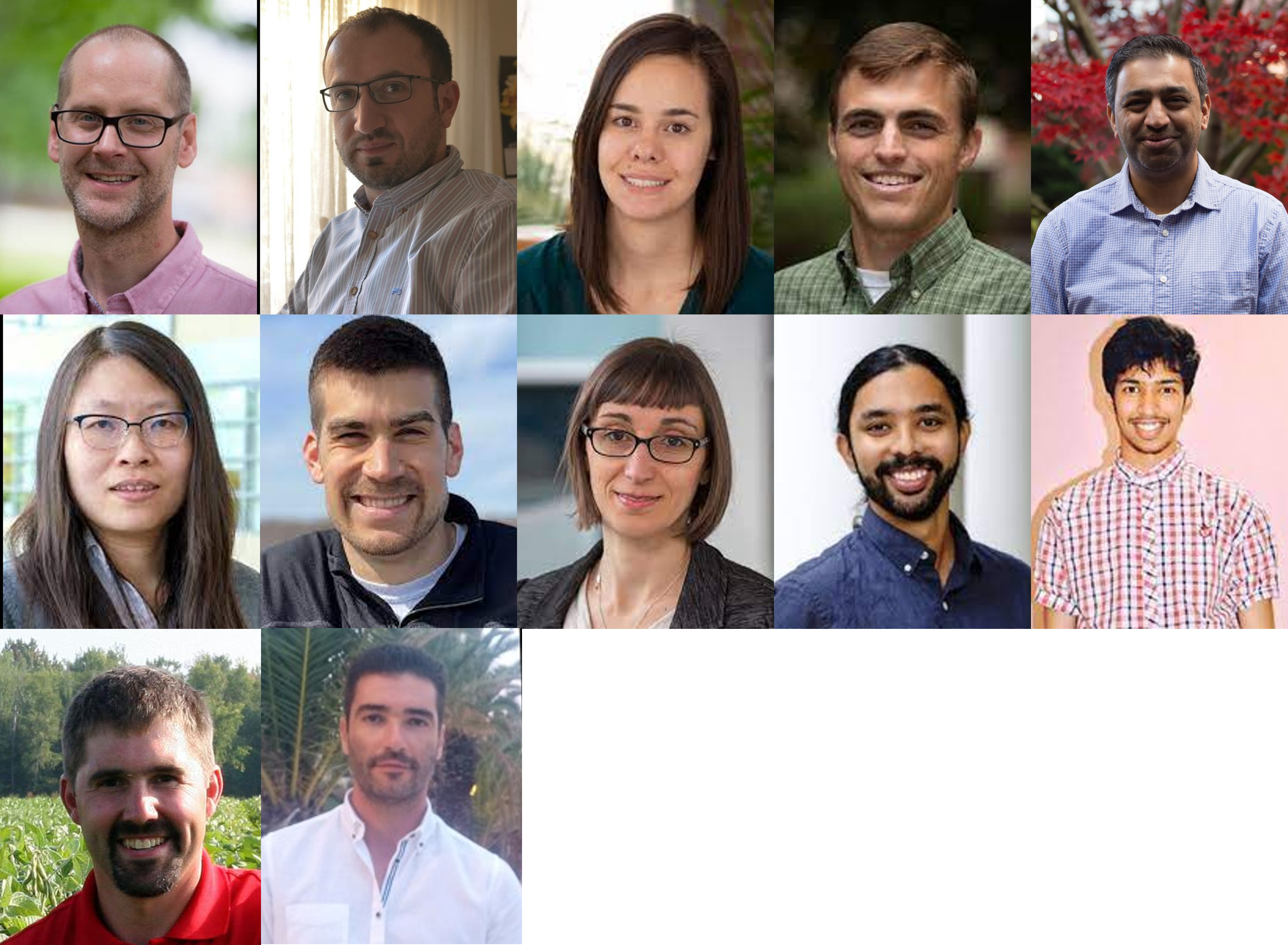OCM About
- About Open Crop Manager (OCM)
- Data collection
- Current services
- Future services
- The OCM Development team
- Funding
- Contact us
About Open Crop Manager (OCM)
OCM was developed to collect and analyze data related to soybean yield and profitability. With OCM, researchers and farmers can collect information about management practices, stressor occurrence, and yield outcome. This information is analyzed to produce valuable information for farmers, such as improved understanding of best management practices, stressor prediction tools, and yield outcome predictors. Data privacy is protected with PSU secure practices and farmer identities’ and field locations are obscured. For more information on how we protect our users' data rights, please see our data privacy documents in the Collaborator Resources folder.
Are you interested in contributing data? Your level of participation is up to you.

Data collection
- Field location - This is used to collect environmental information such as rainfall that can help our team to understand the forces driving crop health.
- Production surveys - Field management information, such as yield outcome, pesticides used, and seeds planted are collected here and used in our modeling to maximize crop yield, sustainability, and profitability.
- Geo-referenced scouting reports and images - These reports reflect conditions throughout the field and throughout the growing season, allowing our team to understand the patterns underlying stressor occurrence in your field. Information such as growth stage and diseases present is collected here.
Current services
- Field records - Data collected in OCM is safeguarded by the Penn State Institute of Computational and Data Sciences. This means that you can use OCM to collect field data and ensure its longevity.
- Diagnostic aid - A disease diagnostic tool is available when creating geo-referenced scouting reports. This tool uses a logic tree to narrow down possible diagnoses. If a diagnosis can't be definitively reached, the answers to this quiz-style logic tree are recorded, potentially allowing for diagnosis later. More information about the diagnostic tool will be available in the Collaborator Resources folder soon!
- Bi-weekly field summaries - Field summary reports are available every other week. These reports show stressor occurence and severity throughout your field, and compare the field's status to the previous time period. You can also see important metrics such as the most severe stressor present and the current growth stage.

Future services
As we collect and analyze more data, we will be able to offer more advanced tools. Below are some of our plans.
- Stressor alerts - Using previous data and current satellite images, we may be able to detect stressor occurrences, such as the development of a new disease, before human eyes. We could then alert farmers of new threats, allowing them to intervene and prevent crop loss.
- Real-time decision support - As our models become more sophisticated, we hope to share them with everyone using OCM. Farmers could use predictive models to simulate the likely outcome of a given treatment, such as the spraying of a pesticide, and make the best decision for their field.
The OCM Development team
OCM was developed by the Penn State Esker Lab, the Penn State Institute of Computational and Data Sciences, and the Penn State College of Information Sciences and Technology. OCM data analysis is performed with collaborators Dr. Shawn Conley (U. Wisconsin-Madison) and Dr. Spyros Mourtzinis (AgStat).

The OCM development team and collaborators. Listed from left to right: Top row: Dr. Paul Esker, Dr. Mladen Cucak, Miranda DePriest, Tyler McFeaters, and Santosh Sanjel from the Penn State Esker Lab. Middle row: Dr. Danying Shao and Clayton Colson from the Penn State Institute of Computational and Data Sciences; Dr. Anna Squicciarini, Dr. Primel Pappachan, and Shashank Sawale from the Penn State College of Information Sciences and Technology. Bottom row: Dr. Shawn Conley from the University of Wisconsin and Dr. Spyros Mourtzinis from AgStat.
Funding
Open Crop Manager and its related research project, Data Driven, are funded by the North Central Soybean Research Program and the Penn State Institute of Computational and Data Sciences SAFES-RISE program.

Contact us
For questions, suggestions, or to learn about live training sessions, please contact Miranda DePriest at mnd20@psu.edu or Dr. Paul Esker at pde6@psu.edu.